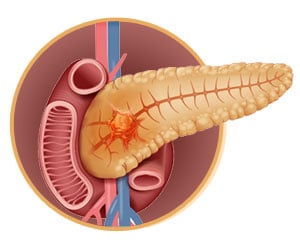Personalized therapeutic cancer vaccines can now be specifically targeted to the immune system using a novel delivery system. This produces a robust immune response that attacks the cancer cells.
- Personalized therapeutic cancer vaccines are likely to be available soon
- A new type of delivery system allows the vaccine to be targeted to the immune system
- This generates a robust T-cell mediated immune response that attacks the cancer cells
This technology has been patented after extensive testing in mice and the findings have been published in the February issue of ACS Central Science, a constituent journal of the American Chemical Society, Washington, USA.
The study was led by Dr. Li Tang, PhD, who is an Assistant Professor and Head of the Laboratory of Biomaterials for Immunoengineering at the EPFL School of Engineering, Lausanne, Switzerland.
Read More..
What are the Criteria for an Ideal Therapeutic Cancer Vaccine?
An ideal therapeutic cancer vaccine should satisfy the following two criteria:- The vaccine should be able to precisely target the cancer cell antigens as mutations in these cells are unique for each individual
- A safe and effective vaccine delivery system should be available for targeted delivery of the vaccine to the desired location to generate a robust and specific immune response
How do Therapeutic Vaccines Differ from Preventive Vaccines?
Preventive or prophylactic vaccines confer protection prior to disease onset. Individuals are immunized with these vaccines, which generate a powerful immune response, producing large amounts of antibodies. The antibodies neutralize an invading pathogen, thereby protecting the vaccinated individual from the disease.On the other hand, therapeutic vaccines are administered after disease onset. The purpose of these vaccines is to help the body fight the disease, which in this case, is cancer. Moreover, these therapeutic cancer vaccines also reduce the chances of relapse.
“There are various sorts of immunotherapies other than vaccines, but some patients don’t respond well to them. The vaccine could be combined with those immunotherapies to obtain the best possible immune response,” explains Tang.
What are the Challenges in Delivering Therapeutic Cancer Vaccines?
The major challenge in delivering a therapeutic vaccine is targeting it to the desired location in the body so that it can elicit a specific immune response.In the case of therapeutic cancer vaccines, the specific immune response is mediated via dendritic cells that present specific antigens to T-cells, so that they get activated and attack the cancer cells. However, after injection of the vaccine into an individual, it has to travel through the blood in order to reach the lymph nodes, which are rich in immune cells.
In this process, there is a high chance that the vaccine components could get dispersed and diluted before reaching the lymph nodes, thereby reducing the vaccine’s efficacy to stimulate the immune system. This poses a huge challenge for scientists who design and formulate the vaccines.
How were the Challenges Overcome?
The research team overcame the challenges by developing a new vaccine formulation that reversibly binds together the individual components of the vaccine. This newly formulated vaccine, known as Polycondensate Neoepitope (PNE), consists of neoantigens (mutated antigens specific to the cancer cells to be eliminated) and an adjuvant for boosting the immune response.When the PNE is mixed with a special solvent, its components bind together to form a large entity that cannot be absorbed into the bloodstream, as a result of which it directly travels to the lymph nodes, bypassing the blood circulatory system. After reaching the lymph nodes, the PNE enters dendritic cells, where it disassembles into its constituent components. This allows the dendritic cells to present the specific antigen to the T-cells, which brings about a robust cellular immune response that attacks the cancer cells.
Concluding Remarks
“This new vaccine, combined with a highly advanced analysis of each patient’s neoantigens, should allow cancer patients’ immune systems to be activated in a personalized and safe way,” says Tang.The research team is currently trying to elucidate the exact stage at which the cancer-specific antigens are identified.
“This identification stage is just as vital,” concludes Tang. “Since these neoantigens aren’t present in healthy cells, accurate identification will allow us to target tumor cells very precisely, without any toxicity to the healthy tissue.”
Reference:
- Redox-Responsive Polycondensate Neoepitope for Enhanced Personalized Cancer Vaccine - (https://pubs.acs.org/doi/10.1021/acscentsci.9b01174)
Source-Medindia
















